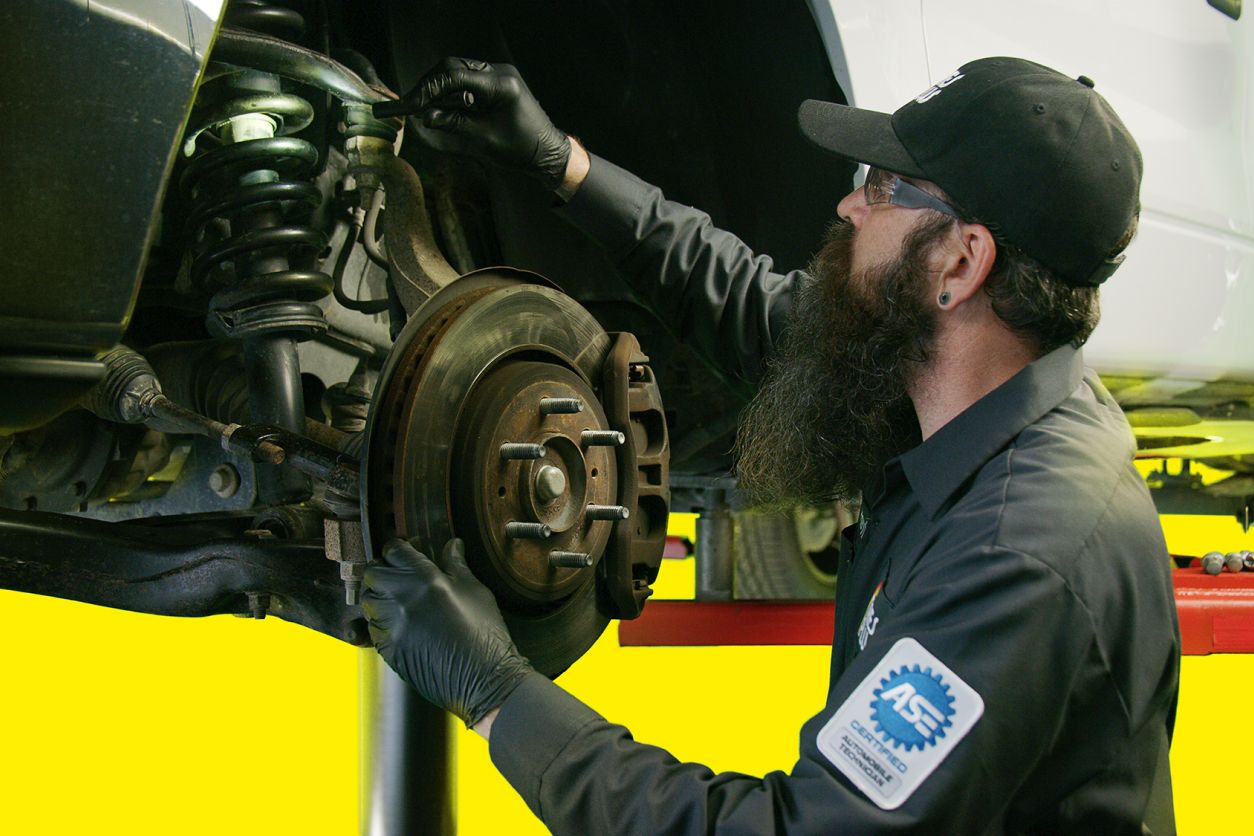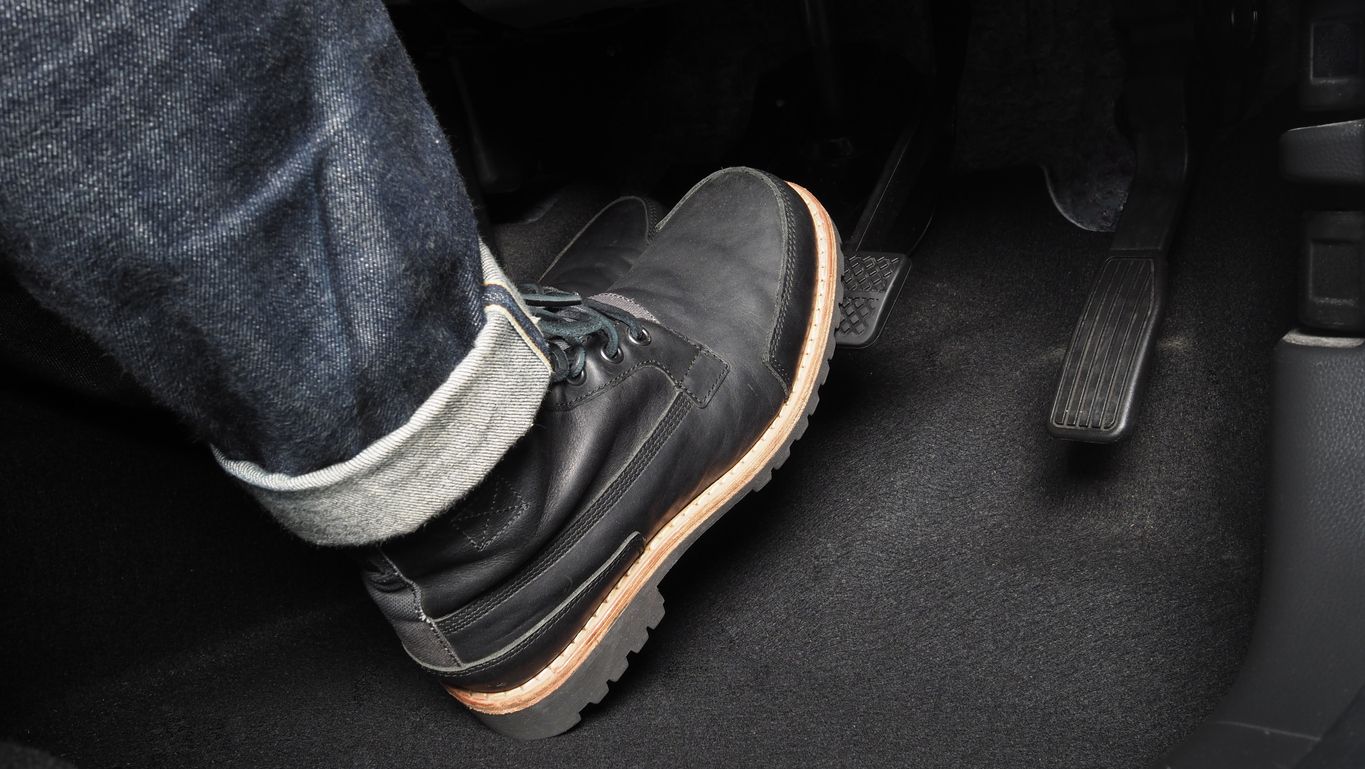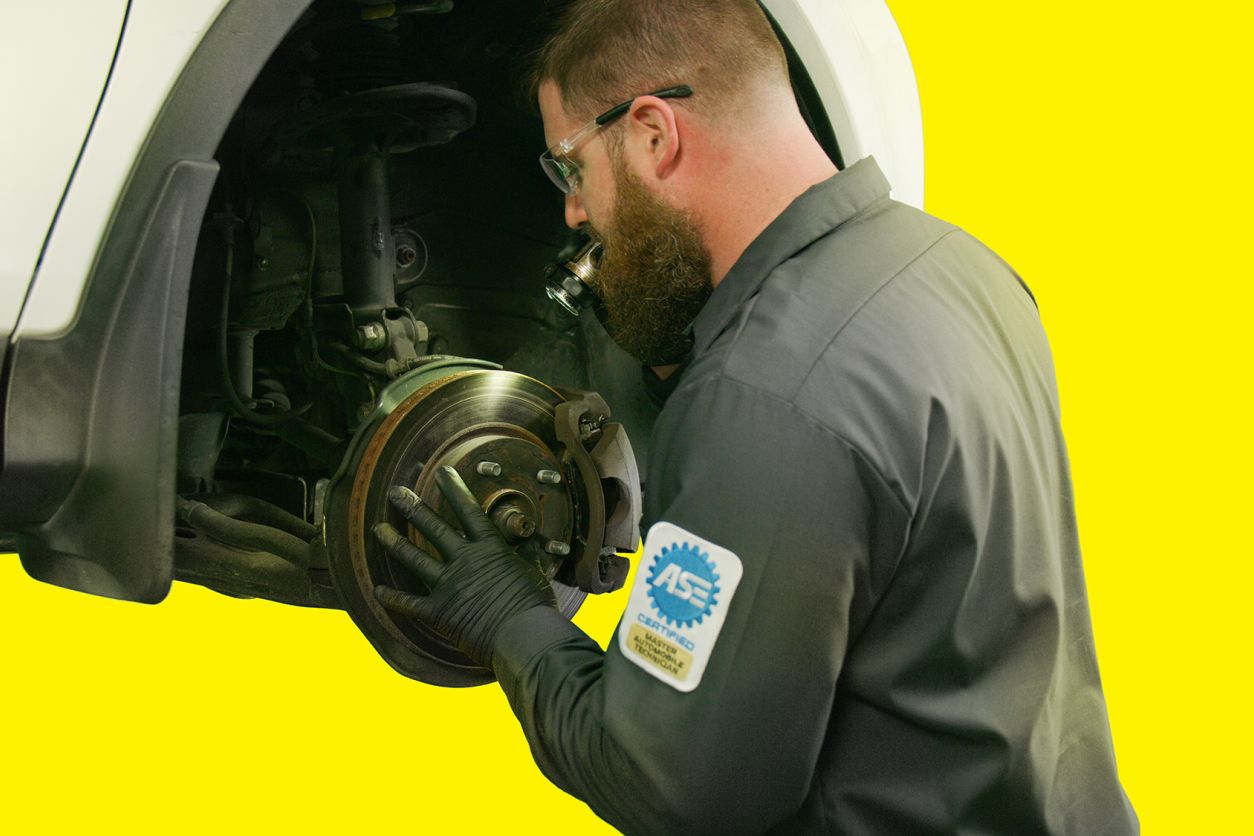You just took your car to the repair shop, so everything should be in working order. But when you make a stop at an intersection you hear your brakes squeak. You hope it’s a fluke, but then it happens again...and again...and again. That doesn’t seem right, especially if you just got new brake pads installed! New brakes shouldn’t be the source of new auto troubles. Learn why your new brakes are squeaking and what you can do to fix it.
WHY ARE MY NEW BRAKES SQUEAKING?
he good news is that, if you just took your brakes in for service, newfound squeaking is likely not a sign of problems with your braking system. Phew. Here are the main reasons why new brakes can squeak on a vehicle.
4 REASONS WHY YOUR NEW BRAKES SQUEAK
1. BRAKES NEED TO BE BROKEN-IN
Sometimes newly replaced brake pads just need extra miles to break in. For their first few uses, brand new brake pads can create excess vibration against brake rotors. This vibration is what causes the squeaking sound. The solution here is to keep on driving so the brake pads wear past the brand-new stage. Avoid harsh stops to help brake pads to break-in correctly.This may require several ‘medium’ but safe applications of the new brakes.
2. MOISTURE BUILD-UP ON ROTORS
You face all sorts of weather and road conditions when you drive. Rainy, icy, and snowy weather can cause rust on your rotors. Even condensation from sitting overnight can leave a small amount of surface rust on your rotors. . The solution here is to carry on driving. The rust layer should scrape away quickly, and you should notice the squeaking stop after a little time on the road.
3. YOU ARE OVER-USING YOUR BRAKES
Ease up on the brakes! Riding the brakes causes brake pads to work overtime and overheat. Aggressive braking can also cause what’s called brake glazing, which is when a brake pad overheats. A glazed brake pad is more likely to vibrate and squeak. If you do not want your brakes to wear out fast, avoid making harsh braking a habit.
4. YOU NEED A DIFFERENT TYPE OF BRAKE PAD
Some replacement brake pads are more likely to squeak after installation than others. For instance, one of the more popular types of brake pads currently for vehicles are long-life brake pads that are semi-metallic. Sometimes the metal shavings from these brake pads can squeak as they come in contact with brake rotors. If you want to avoid this, you can opt for ceramic brake pads that are less likely to squeak and also have long lasting durability. We believe quality parts make for quality repairs. At Tires Plus we offer top notch semi-metallic and ceramic brake pads for your brake service needs.
There you have it! The case of your squeaking new brakes is now closed. Still, sometimes other brake problems require more troubleshooting to resolve. Luckily, you can count on our experts for help. The next time you need brake service, visit your nearest Tires Plus for all your auto repair and tire needs.



